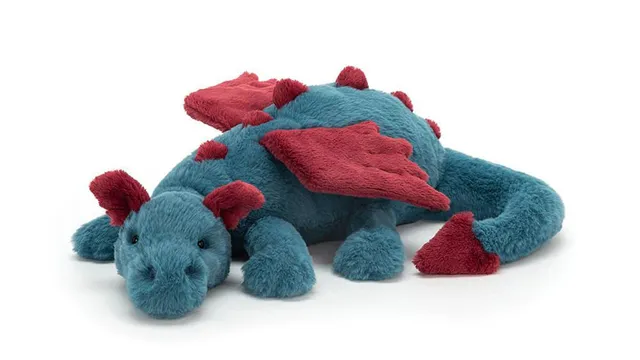
Jellycat accuses Aldi of copying its Dexter Dragon toy design
2024-09-02 00:00- Jellycat claims Aldi copied its Dexter Dragon toy design, selling a similar version for £4.
- The budget supermarket has faced previous accusations of design infringement, including a dispute with M&S.
- Aldi's dragons have been removed from shelves following the complaint, but the supermarket denies the allegations.
Express your sentiment!
Insights
Jellycat, a prominent soft toy manufacturer, has accused Aldi of copying its popular Dexter Dragon design, which retails for £27, by offering a similar toy for just £4. This allegation is part of a broader concern from Jellycat regarding Aldi's history of design infringements, as noted in previous disputes, including a notable case with M&S over a cake design. The controversy has sparked discussions among soft toy enthusiasts, who have labeled the Aldi version as a 'rip off' while acknowledging its affordability. Following the complaint, Aldi's dragons have reportedly been removed from store shelves, although the supermarket has denied any wrongdoing, asserting that their product is not a copy. The incident highlights the ongoing challenges faced by brands in protecting their intellectual property in a competitive market, especially as Jellycat continues to gain popularity among consumers, including members of the Royal Family. Founded in 1999 by brothers William and Thomas Gatacre, Jellycat has seen a surge in demand for quirky stuffed animals, reminiscent of the Beanie Baby craze of the 1990s, further complicating the landscape for budget retailers like Aldi.
Contexts
Jellycat, a well-known toy manufacturer, has accused Aldi of copying the design of its popular Dexter Dragon toy. This allegation highlights ongoing concerns within the toy industry regarding intellectual property rights and design imitation. Such disputes are not uncommon, as companies strive to protect their unique designs from being replicated by competitors. In recent times, Aldi has faced scrutiny from various small businesses claiming that the supermarket chain has replicated their products. This includes accusations related to a frozen dessert, indicating a pattern of alleged design infringement that could impact Aldi's reputation among consumers and small business owners alike. The controversy surrounding Aldi's product offerings has led to mixed reactions from shoppers. While some appreciate the affordability and variety of Aldi's products, others feel cheated when they discover similarities between Aldi's items and those of established brands. This sentiment can affect customer loyalty and trust in the brand. As the situation unfolds, it remains to be seen how Jellycat's claims will be addressed and whether Aldi will respond to the allegations. The outcome could have implications for both companies and the broader retail landscape, particularly in how design rights are enforced and respected.